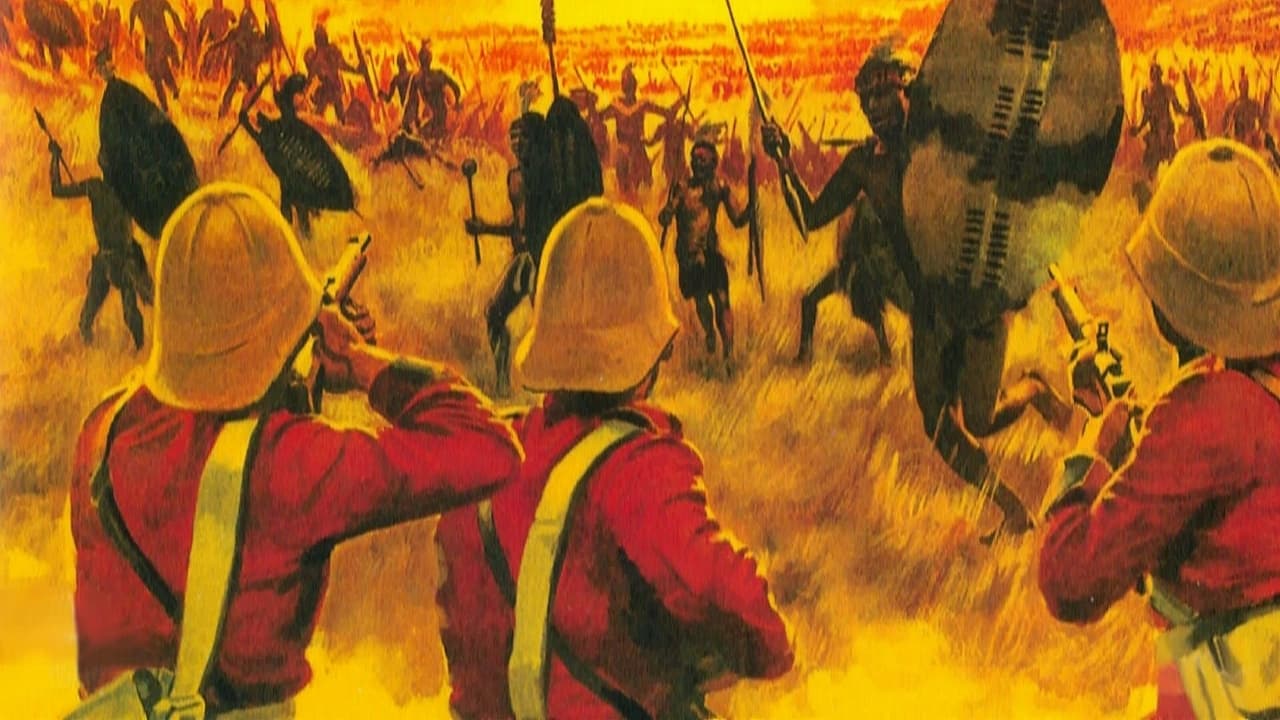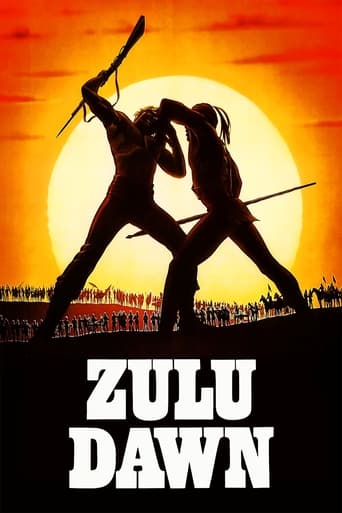

This Movie Can Only Be Described With One Word.
... View MoreAn absolute waste of money
... View MoreIt isn't all that great, actually. Really cheesy and very predicable of how certain scenes are gonna turn play out. However, I guess that's the charm of it all, because I would consider this one of my guilty pleasures.
... View MoreThe movie turns out to be a little better than the average. Starting from a romantic formula often seen in the cinema, it ends in the most predictable (and somewhat bland) way.
... View MoreThis was a very difficult film for me to review. It had two of my very favorite actors; Burt Lancaster and Peter O'Toole in a film of a battle of the doomed. Filming battles of the doomed requires exceptional development and pacing. Unfortunately, despite some heroic efforts to do so, the director was not able to make the film click, nor to make the characters of the British sympathetic as opposed to his predecessor, who made Zulu. No, the sympathies in this film lie strictly with the Zulus. The British in the original Zulu were fighting for their lives in a heroic struggle; the British in the prequel were arrogant asses, particularly O'Toole's general. The production values of the film were impressive, particularly the spectacular cinematography, however the music here was not as compelling as the original Zulu. One major difference between the two films was pacing. The original went into high gear after only twenty minutes. This one took almost an hour and a half to achieve that intensity. Of course, it was almost an impossible task for the director to pace a film of the doomed. Films like The Alamo and Bataan were similar films of the doomed, but both of those movies had the protagonists on the right side of good vs evil. This film could not make that claim. The roles of the good guys vs the bad guys had changed over the course of several decades. Before the sixties and seventies, the good guys were the guys fighting the Indians. After that time period, it was the Indians who were the good guys, and those who fought them became suspect. The same held true for this film. The movie is a very decent production in its own right, which is why I gave it a 6. But Zulu was clearly a better film at 8.
... View MoreA fairly early example of a prequel, this film is in the most part faithful to history and makes no effort to spare the reputations of any of the principal characters or the British attitude to the indigenous population This movie for once, portrays the protagonists correctly and one feels sympathy for the Zulu cause The films spends a deal of time dealing with the political background leading up to the invasion and subsequent defeat of the British. A lot of poetic licence was taken with the deaths of Durnford and Pulleine, and the "saving of the colours" by Vereker was in fact total fiction. The battle scenes were both lengthy and in the most part accurate apart from Zulus throwing Assegais which they never did as they were top heavy short handled stabbing weapons. That not withstanding this was an enjoyable movie at the time and you could do worse than to watch this followed by Zulu! to see the whole battle in chronological order. A little heavy on A List actors of the day which pushed it over budget
... View MoreI remember reading a very long book detailing the history of the Zulu- starting with the migration from northern Africa many, many centuries ago, to their arriving in the area of South Africa, at the same time that Portuguese and Dutch colonists were arriving. It then give a very detailed history, including a great look into the actual participants in the Zulu War. "Zulu Dawn" doesn't get it perfect, but it's a lot closer to actual history than most movies come close to! I can see that many of the officers are actually pretty close to those described in the book, when 99.99% of those who watch the movie wouldn't have known if they were wholly made up.Peter O'Toole and Burt Lancaster are a breed of actor that we'll never see again and it's wonderful to see them in this, but I also loved the performance of all the others. As a kid the image that always stuck in my head was of Melville, toward the end of the battle, jumping his horse over a wrecked cannon, with the Regimental Colours flowing.This is one of those few movies I want to watch once a year, over and over.
... View MoreAs a history nut who is particularly interested in this particular historical event, I was very disappointed with the movie. Granted, the costumes and staging was quite authentic, but the Hollywood portrayal of this "British Little Big Horn" was truly boring.The amount of film footage dedicated to marching or parading troops has to have been unprecedented in film history. Eveytime I heard triumphant background music begin, I knew I had to prepare myself for another laborious scene of meaningless filler. Obviously, the producers had invested heavily into "staging" and were determined to get their money's worth.Despite the outstanding cast, their dialogue was, again, boring and their characters were never developed. Whenever Peter O'toole or Burt Lancaster finished a scene, I would cringe with disappointment. Their given lines were so weak and meaningless that I could hardly believe these were the same two great actors who portrayed Lawrence of Arabia and the Bird Man of Alcatraz respectively.There are worse epics, but this one is not much better.
... View More